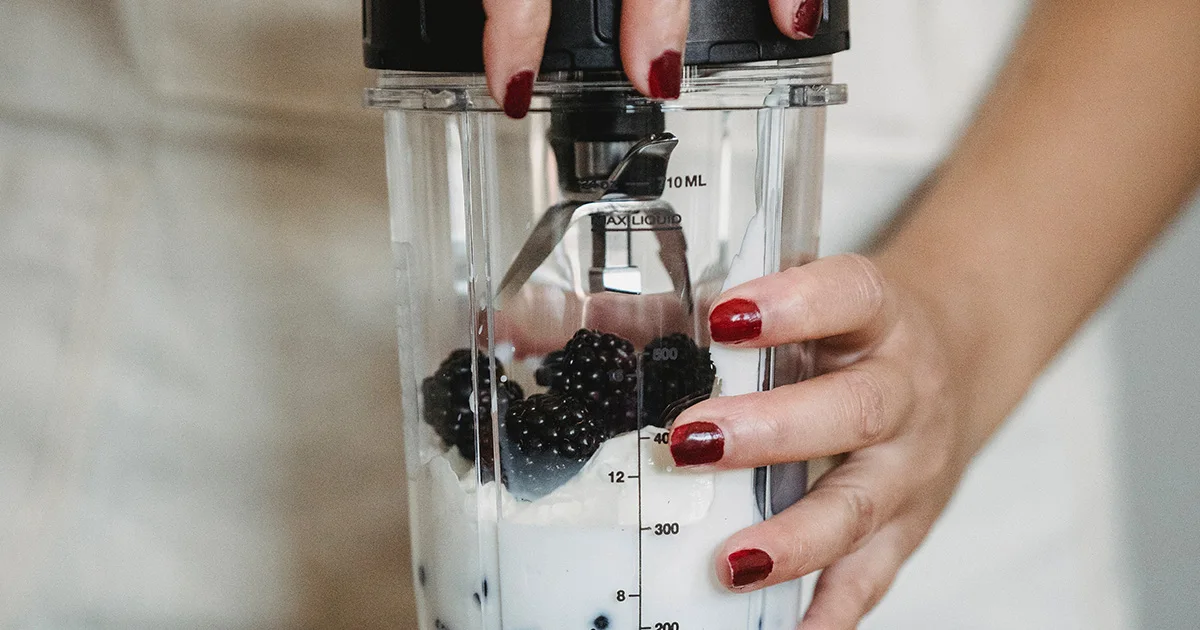Here's what we'll cover
Here's what we'll cover
Sugar is popular because of the sweetness it adds to food and beverages. But with all the health concerns linked to large amounts of added sugar, you may be looking for natural sweeteners to replace granulated sugar or artificial sweeteners.
Keep reading to learn more about 11 natural sweeteners you could use as an alternative to regular table sugar.
Natural sweeteners vs. sugar
Table sugar comes from processing sugar cane or sugar beets. Natural sweeteners are generally considered a better alternative because they require less processing, which is why they tend to provide a healthier sugar substitute for adding sweetness to foods or drinks.Some types of natural sweeteners even provide vitamins, minerals, and fiber. Most have a lower glycemic index, making it less likely to spike blood sugar levels than table sugar.
Many sweeteners may be considered natural. However, it’s helpful to know that there aren't regulations that define “natural” sweeteners. And the argument could be made that table sugar is a natural sweetener since it comes from plants.
So it’s helpful to be cautious when reading terms like “natural” on labels. The best approach is to evaluate the different options available, see which options you prefer the taste of while assessing how it impacts your health, and discuss any questions with a nutrition expert.
Honey
For thousands of years, people have used honey to sweeten foods and for medicinal purposes. People collect honey from the honeycomb, and it requires little to no processing to enjoy. Unlike table sugar, honey provides more than just sweetness. In addition to the fructose and sucrose (sugar) found in honey, it contains minerals like selenium, zinc, copper, phenolic acid, and flavonoids.
Some research suggests honey may be a better alternative for people with diabetes, but the jury is still out. A natural sweetener like honey still needs to be consumed in moderation because it still adds sugar to the diet and can increase blood sugar levels.
Agave
Agave comes from the sap of the agave plant, and the sweetness in agave mainly comes from fructose. It’s naturally sweet with a low glycemic index, meaning it provides a sweet flavor while having a lower impact on blood sugar than traditional table sugar.
The nectar from the agave provides some vitamins and minerals, including B vitamins, vitamin C, potassium, calcium, and selenium. Agave is sweeter than sugar, so it requires less agave to provide the same level of sweetness.
Coconut Sugar
The sap of a coconut tree can be harvested to create coconut sugar. It is available as a syrup or dried into crystals. While this option is less processed than traditional table sugar, it’s fairly similar and should be used in moderation. It does provide some antioxidants, minerals, and plant fiber, so it may be a slightly better option than white sugar.
Maple syrup
Maple syrup is a popular natural sweetener created from the sap of maple trees. It’s commonly used for baking and adding that maple flavor to foods.
Maple syrup has a lower glycemic index than table sugar and contains vitamins and minerals. Still, maple syrup needs to be used in moderation because of the calories and sugar it has. Consuming too much could add too much sugar to your diet and increase blood sugar levels.
Applesauce
Applesauce can add both sweetness and moisture to baked goods. But applesauce can add more than sweetness when baking. Apples contain a gelatinous polysaccharide called pectin, which acts as a binder. It helps to thicken, stabilize, and provide structure to foods.
You can use applesauce to replace oil, butter, and eggs in baked goods. You can use a 1:1 ratio for oil and butter, so if the recipe calls for ½ cup of butter, you can replace it with ½ cup of applesauce. If the recipe calls for one egg, replace it with ¼ cup of applesauce.
Applesauce is a great natural sweetener because it provides vitamins, minerals, antioxidants, and fiber. Just be mindful that some types of applesauce may contain added sugar. Try to look for unsweetened applesauce or make your own.
Fruit
Fruits are naturally sweet because they contain fructose. You could use them to add sweetness to baking, cooking, or other foods. Mix them into salads, plain yogurt, oatmeal, smoothies, and more to add extra flavors and sweetness.
You may want to opt for whole, dried, or crushed fruits, depending on what you’re making.
Dried fruits bring extra sweetness because the flavors become more concentrated through the drying process. Any fruit can be dried. Commonly available dried fruits include cranberries, raisins, cherries, dates, prunes, figs, and apricots.
Crushed or pureed fruits also offer a way to add flavor and color to baked goods. Pigmented fruits like berries provide a natural way to color baked goods instead of using food dyes.
Choosing fruit to sweeten foods naturally also adds vitamins, minerals, fiber, and antioxidants to what you eat. Just read the packaging to ensure no sugar was added to the fruit.
Stevia
The popular no-calorie sweetener Stevia comes from a plant native to South America. People extract the sweetener from the leaves of the Stevia rebaudiana plant.
The leaves are sweeter than table sugar while providing zero calories. Unlike table sugar, stevia appears to have no effect on blood glucose and insulin levels. While stevia seems to be well tolerated, some people may experience side effects like digestive issues. Some people may experience a bitter aftertaste from stevia.
Monk Fruit
Monk fruit, also called the lo han guo or Swingle fruit, comes from southern China. The fruit extract can be used as a no-calorie sweetener. It’s significantly sweeter than sugar, so you need a smaller quantity than table sugar.
It’s available in a liquid version but it’s more commonly dried into a powder. The powder may not fully dissolve the way sugar does and may not be the best option for all foods.
Monk fruit extract is generally considered safe by the Food and Drug Administration (FDA). However, more research is needed to understand how it influences the human body.
Sugar alcohols
Sugar alcohols, also called polyols, contain a similar molecular structure to sugar. There is no alcohol in sugar alcohols. Instead, it’s a type of carbohydrate. Most sugar alcohols are slightly less sweet than sugar while containing significantly fewer calories. Sugar alcohols like erythritol, xylitol, mannitol, and sorbitol can naturally occur in plants.
They won’t impact blood sugar like sugar does because the digestive system can’t fully absorb them. Some people report a bitter aftertaste with sugar alcohols and may experience digestive issues such as bloating, cramping, and diarrhea.
While sugar alcohols are generally considered safe, newer research questions this notion. A 2023 study found that artificial sweeteners such as erythritol were associated with a higher risk for cardiovascular events like heart attacks or stroke.
Thaumatin
Thaumatin, also called talin, is a group of proteins used as a low-calorie sweetener and flavor modifier. The proteins derive from the fruit of the Thaumatococcus daniellii plant. It may leave a licorice-like aftertaste.
Sweet proteins, such as Thaumatin, are not associated with adverse health effects.
Do natural sweeteners help with weight loss?
Natural sweeteners could help with weight loss, but it all depends on how they fit into your lifestyle. Research does suggest that replacing sugar with zero-calorie sweeteners or artificial sweeteners may support weight loss efforts by helping create a calorie deficit, but not all natural sweeteners have zero calories.
However, weight loss and maintaining a healthy weight can be more complicated than a simple sugar alternative.
You’ll want to evaluate your full lifestyle and how all these factors play together. A healthy lifestyle consists of diet, physical activity, sleep, and stress management. Still, how much sugar you consume does influence the quality of your diet, so testing out some of these sugar substitutes could help reduce total calories from sugar.
If you have any questions about how natural sugar alternatives could influence your health, talk with your healthcare provider or a registered dietitian.
DISCLAIMER
If you have any medical questions or concerns, please talk to your healthcare provider. The articles on Health Guide are underpinned by peer-reviewed research and information drawn from medical societies and governmental agencies. However, they are not a substitute for professional medical advice, diagnosis, or treatment.
Ahmad, S. Y., Azad, M. B., Friel, J., & MacKay, D. (2019). Recent evidence for the effects of nonnutritive sweeteners on glycaemic control. Current Opinion in Clinical Nutrition and Metabolic Care, 22(4), 278–283. doi: 10.1097/MCO.0000000000000566. Retrieved from https://pubmed.ncbi.nlm.nih.gov/31033578/
Arumugam, B., Subramaniam, A., & Alagaraj, P. (2020). Stevia as a natural sweetener: A review. Cardiovascular & Hematological Agents in Medicinal Chemistry, 18(2), 94–103. doi: 10.2174/1871525718666200207105436. Retrieved from https://pubmed.ncbi.nlm.nih.gov/32031079/
Bobiş, O., Dezmirean, D. S., & Moise, A. R. (2018). Honey and diabetes: the importance of natural simple sugars in diet for preventing and treating different types of diabetes. Oxidative Medicine and Cellular Longevity, 2018, 4757893. doi: 10.1155/2018/4757893. Retrieved from https://www.ncbi.nlm.nih.gov/pmc/articles/PMC5817209/
Joseph, J. A., Akkermans, S., Nimmegeers, P., & Van Impe, J. F. M. (2019). Bioproduction of the recombinant sweet protein thaumatin: current state of the art and perspectives. Frontiers in Microbiology, 10, 695. doi: 10.3389/fmicb.2019.00695. Retrieved from https://www.ncbi.nlm.nih.gov/pmc/articles/PMC6463758/
Nadolsky, K. Z. (2021). COUNTERPOINT: Artificial sweeteners for obesity-better than sugary alternatives; potentially a solution. Endocrine Practice : Official Journal of the American College of Endocrinology and the American Association of Clinical Endocrinologists, 27(10), 1056–1061. doi: 10.1016/j.eprac.2021.06.013. https://pubmed.ncbi.nlm.nih.gov/34481971/
Velázquez Ríos, I. O., González-García, G., Mellado-Mojica, E., et al. (2018). Phytochemical profiles and classification of Agave syrups using 1H-NMR and chemometrics. Food Science & Nutrition, 7(1), 3–13. doi: 10.1002/fsn3.755. Retrieved from https://www.ncbi.nlm.nih.gov/pmc/articles/PMC6341176/
Teysseire, F., Bordier, V., Budzinska, A., et al. (2023). Metabolic effects and safety aspects of acute D-allulose and erythritol administration in healthy subjects. Nutrients, 15(2), 458. doi: 10.3390/nu15020458. Retrieved from https://www.ncbi.nlm.nih.gov/pmc/articles/PMC9863415/
Witkowski, M., Nemet, I., Alamri, H., et al. (2023). The artificial sweetener erythritol and cardiovascular event risk. Nature Medicine, 29(3), 710–718. doi: 10.1038/s41591-023-02223-9. Retrieved from https://pubmed.ncbi.nlm.nih.gov/36849732/
Yamamoto, T., Sato, K., Kubota, Y., et al. (2017). Effect of dark-colored maple syrup on cell proliferation of human gastrointestinal cancer cell. Biomedical Reports, 7(1), 6–10. doi: 10.3892/br.2017.910. Retrieved from https://www.ncbi.nlm.nih.gov/pmc/articles/PMC5492655/












